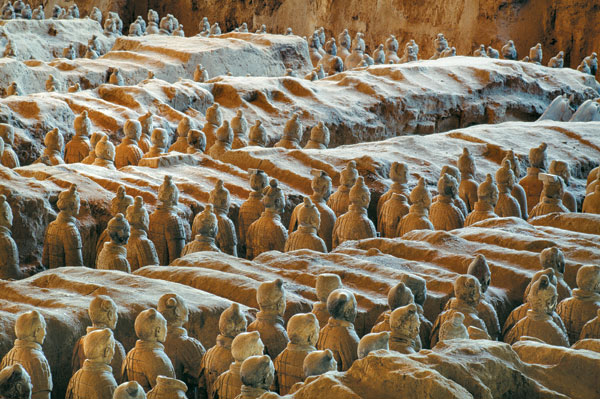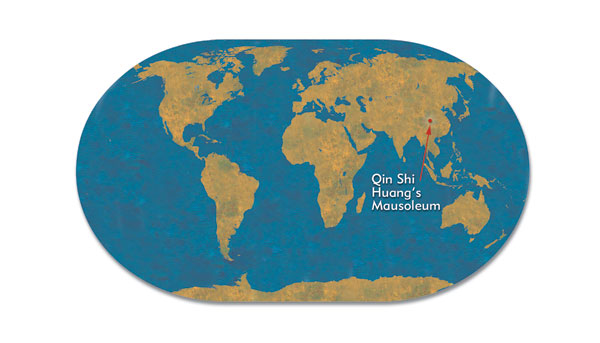Horizons: Armies of the Night: Qin Shi Huang’s Mausoleum
An 8,000-man terracotta army, arrayed for battle in three huge underground pits, fights for a death-obsessed emperor in the afterlife.

China’s first emperor was an enlightened man. Born into the feudal chaos of the Warring States period (475–221 B.C.), Qin Shi Huang (259–210 B.C.) unified China in the Qin Dynasty, the first of a series of dynasties that ruled the country until the 20th century A.D. (“Qin,” pronounced “Chin,” is the root of “China.”) He standardized Chinese script, currency, weights and measures; developed a uniform law code; built a vast network of roads radiating out from the capital at Xianyang (18 miles northwest of modern Xian); and connected up walls built by earlier states in the north, thus completing the 1,850-mile-long Great Wall of China.

But Qin Shi Huang was also a cruel man, with dark passions, who levied crippling taxes on his people, conscripted hundreds of thousands of men for his diverse building projects and tolerated no dissent. He tried to eliminate forever the influence of the philosopher Confucius (551–479 B.C.)—who appealed to reason and moderation—by banning all nontechnical books. Haunted by his mortality, Qin Shi Huang consulted magicians to find the secret of eternal life, and he died while traveling in search of such an elixir.
Already a library member? Log in here.
Institution user? Log in with your IP address.

